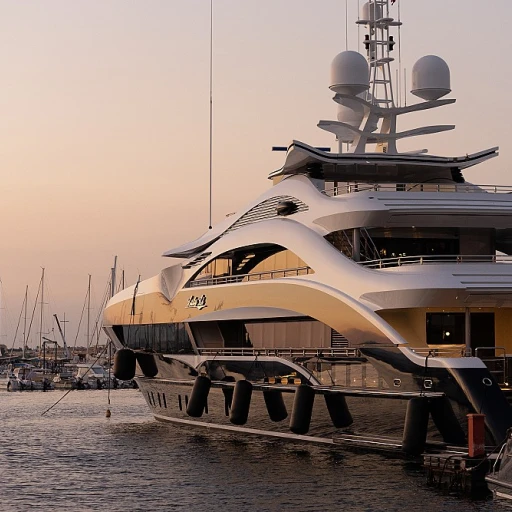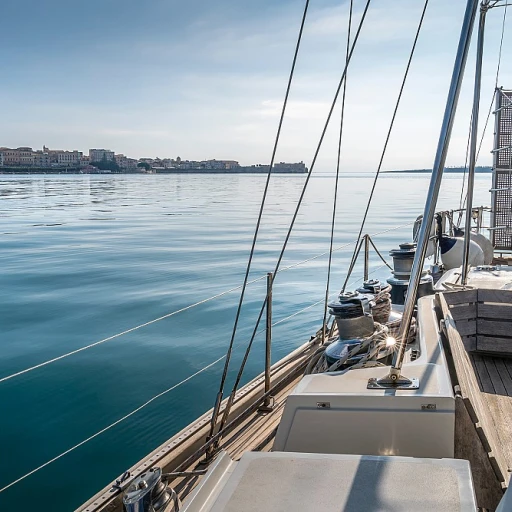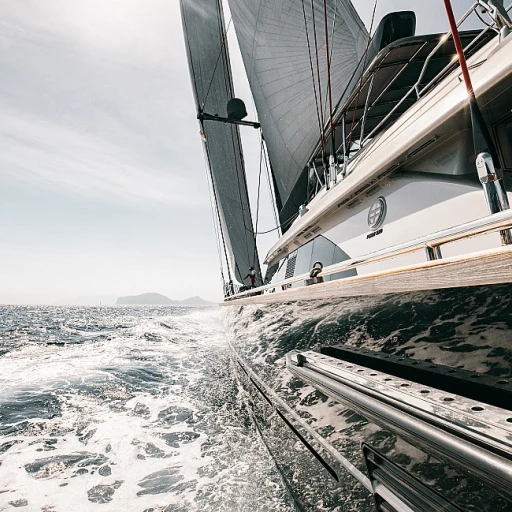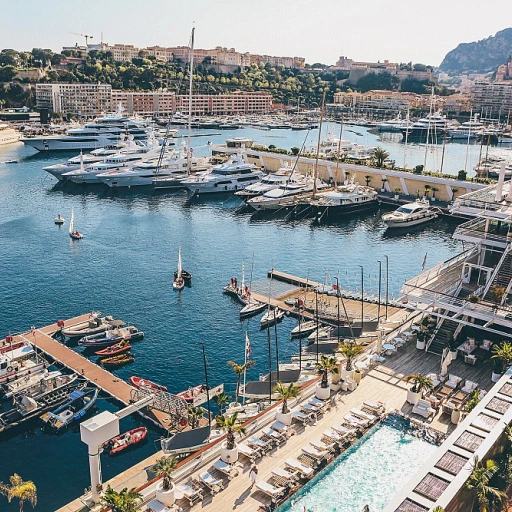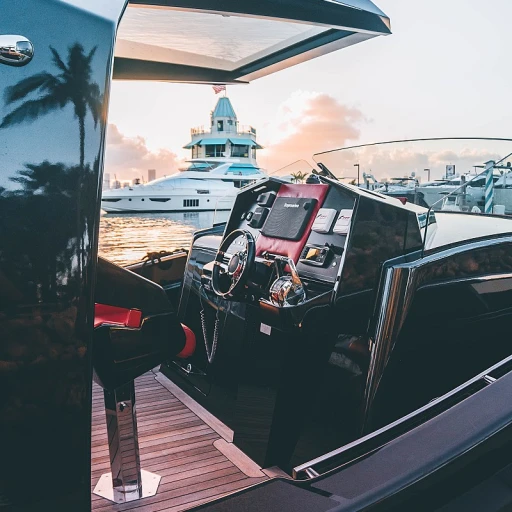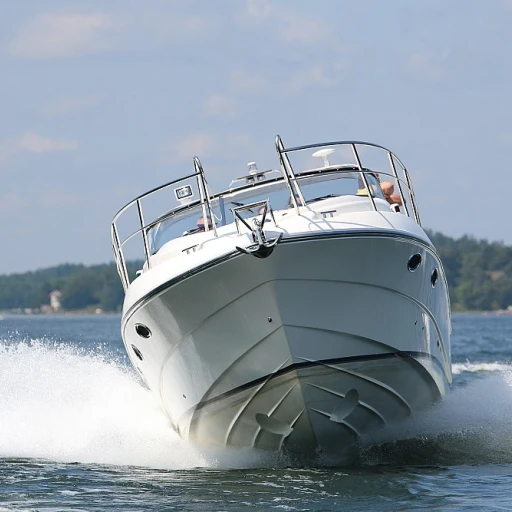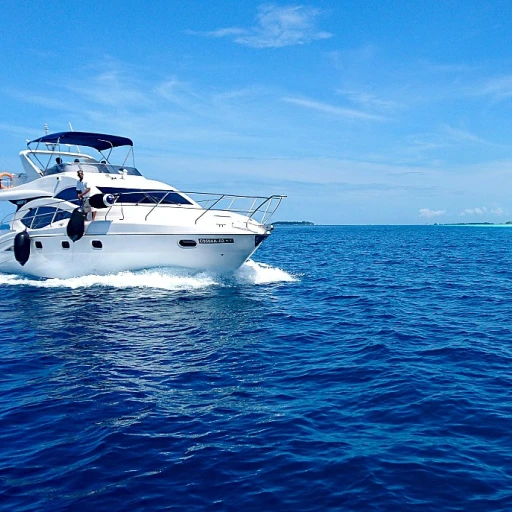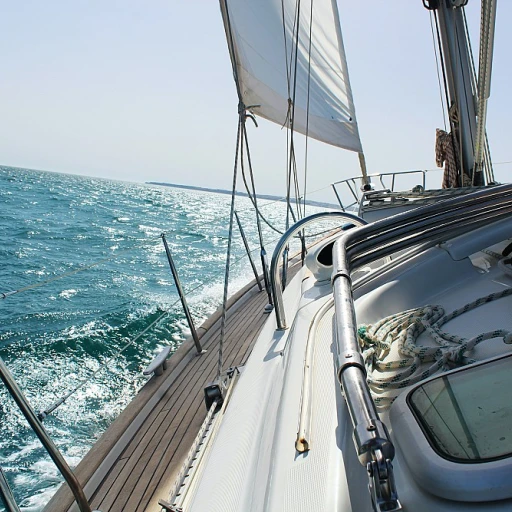
The Importance of LPG Systems in Yachts
Critical Role of LPG Systems
When it comes to yachts, the importance of an efficient and safe LPG system cannot be overstated. These systems are the heartbeat of the yacht’s onboard fuel management, powering everything from the galley stoves to the essential heating systems. In a closed marine environment like a yacht, using an LPG system efficiently involves understanding its components, including the solenoid valve. A properly functioning LPG system ensures that fuel is distributed safely and efficiently. It is also crucial for maintaining the proper pressure and flame control, which are vital for both operational efficiency and safety. This includes managing the high pressure of LPG through a network of gas valves, hoses, and fittings designed to withstand marine conditions. For those looking to enhance their yacht’s performance, proper maintenance of the LPG system is vital. It’s not just about reliability but also about the ability to unleash the full power of your yacht’s engines and lights without compromising safety. Unleashing the full potential of such systems can significantly improve the yachting experience, ensuring that all systems, from water pumps to bilge pumps, operate seamlessly. The integration of modern technologies in LPG systems also helps increase corrosion resistance, ensuring marine-grade durability. Innovations like advanced solenoid valves and structural improvements in control panels are game-changers, bringing a new level of efficiency and reliability to marine LPG systems.What is a Marine LPG Solenoid Valve?
Understanding Solenoid Valves in Marine LPG Systems
When it comes to ensuring the safe flow and control of LPG on yachts, the marine LPG solenoid valve plays a critical role. These valves are designed to manage the flow of gas through your yacht's system, utilizing a combination of electrical currents and mechanical parts to control the opening and closing of the valve.
Solenoid valves operate by using a coil, which is a copper wire that wraps around a metallic core. When electrical power is applied to the coil, it creates a magnetic field that moves the core, opening or closing the valve's passage. This process allows for precise control over gas pressure and flow, effectively managing the supply to critical components such as water heaters, cooking appliances, and heaters.
Marine-grade solenoid valves are crafted from corrosion-resistant materials, like stainless steel, to withstand the harsh marine environment. Their performance is enhanced by various accessories, such as circuit breakers and switches, which provide additional control over gas flow and safety features, ensuring that your systems operate seamlessly under high pressure conditions.
Effective control of LPG systems on a yacht requires not only diligent maintenance of these solenoid valves but also understanding the complexity of their design and function. This understanding is crucial in avoiding potential hazards linked to the improper handling of gas systems on board.
The Function of Resistors in Solenoid Valves
The Significance of Resistors in Efficient Solenoid Functionality
In the realm of marine applications, understanding the intricate details of how solenoid valves operate can vastly improve the reliability and safety of yacht LPG systems. Solenoid valves, integral to controlling the flow of gas and water in marine environments, depend on precise electrical components to operate effectively. One critical component within these valves is the resistor. Resistors are primarily responsible for managing the electrical current that flows through the solenoid coil, ensuring the proper function of the valve. The coil, when energized, generates a magnetic field that moves the valve's plunger, allowing for gas or water flow. Without the correct resistance, this process might become erratic, leading to oscillations in output pressure and, eventually, component failure due to overheating or electrical surges. In high-pressure applications within the LPG system, maintaining control is vital to prevent potential hazards such as gas leaks or catastrophic system failures. Thus, having a resistor that can manage the electricity with precision is pivotal for the solenoid valve's durability and efficiency. Additionally, integrating marine-grade accessories can enhance your yacht's longevity by providing corrosion resistance, vital in harsh marine environments. Properly functioning resistors within solenoid valves contribute to the integrity of various yacht systems, such as fuel and water pumps, as well as bilge pumps. These components, often exposed to high vibration levels and wet conditions, necessitate dependable electrical infrastructure to ensure consistent operation. For yacht owners, understanding and maintaining these components means not only extending the life of your equipment but also ensuring your vessel remains safe and sea-ready. Enhancing your yacht’s technical components through regular maintenance and appropriate upgrades, such as the utilization of stainless steel fittings and circuit breakers, can significantly improve system reliability. This approach not only safeguards your investment but also facilitates greater efficiency in controlling the various mechanical facets aboard your yacht. For instance, ensuring that your solenoid valves are supported by high-quality resistors can prevent damage and maintain control over fuel and water distribution systems, proving essential for both performance and safety.Challenges in Maintaining Marine LPG Systems
Maintaining Optimal Performance in Marine LPG Systems
Maintaining marine LPG systems aboard a yacht presents a unique set of challenges that require meticulous attention to detail and a deep understanding of system components. The marine environment is particularly harsh, and components like solenoid valves, which regulate the flow of gas, are constantly exposed to moisture and salt. This exposure can lead to corrosion and affect the reliability and safety of the system. Utilizing corrosion-resistant materials, such as marine-grade stainless steel, in the construction of solenoid valves is essential to withstand these harsh conditions. In addition to corrosion resistance, the differential pressure within the system must be carefully managed. Solenoid valves equipped with high-quality coils ensure the precise control of gas flow, crucial for maintaining the right operating pressure in LPG systems. This is important for preventing leaks and ensuring a steady gas supply, whether it's for cooking appliances or heating systems. Regular inspections and maintenance routines are vital for the longevity of LPG systems. Yacht owners should routinely check hoses and fittings for signs of wear or damage, such as cracks or leaks, which could compromise pressure integrity. Checking the power supply to solenoid valves, along with ensuring that circuit breakers are in good condition, aids in preventing electrical issues that could disrupt valve function. Incorporating a proactive approach by utilizing advanced solenoid valve technologies, such as those with built-in sensors and smart control panels, can significantly enhance system reliability. These smart systems allow for remote monitoring of gas valves and can provide alerts in case of anomalies, minimizing the risk of malfunctions and ensuring immediate issue resolution. Lastly, consider how accessories like pumps electric, bilge pumps, and wet exhaust systems integrate with LPG setups. They can affect overall system performance and may need adjustments for high-pressure environments. Regularly revisiting maintenance procedures, tailored to the specifics of your yacht's LPG setup, ensures everything operates smoothly and safely.Innovations in Solenoid Valve Technology
Technological Advancements Enhancing Solenoid Valve Performance
Modern solenoid valves play a crucial role in the safe and efficient operation of marine LPG systems. Innovations in this technology are continuously being driven by the need to enhance reliability and performance under the demanding conditions faced at sea.- Improved Materials: Marine-grade stainless steel is increasingly being used in solenoid valve construction, offering superior corrosion resistance and longevity in high-pressure environments.
- Enhanced Coil Efficiency: Coils are integral to solenoid operation, and advancements in their design have led to reductions in power consumption and increased durability. This improvement is essential for maintaining consistent pressure control and ensuring the seamless operation of LPG systems.
- Smart Control Features: The integration of smart technology into control panels allows for precise gas control and monitoring. These systems often include features like automatic shut-off switches and diagnostics for identifying issues before they escalate.
- Resilient Sealing Technologies: Developments in sealant materials have better equipped solenoid valves to handle differential pressures and prevent leaks in both gas valves and water pumps.
- Improved Integration: Connectivity with other yacht systems, such as water pumps, bilge pumps, and lights, helps in better overall management. For instance, utilizing control cables that link LPG solenoid valves to the vessel's main control setup ensures that all components work in unison, reducing the chances of a failure.
Best Practices for Yacht Owners
Essential Practices for Seamless Yacht LPG Systems
Maintaining a well-functioning LPG system on your yacht is crucial, not only for safety but also for maximizing efficiency and prolonging the lifespan of your solenoid valve components. A few best practices are indispensable for yacht owners to keep their systems in top condition.- Regular Inspection and Maintenance: Periodic checks of your LPG system, including the LPG solenoid and associated valves, fittings, and hoses, are crucial. It's essential to detect any potential issues early, such as signs of wear or corrosion on stainless steel components. Investing in corrosion-resistant marine-grade materials for your system can significantly enhance durability.
- Monitor Pressure Levels: Ensuring that pressure levels within your fuel hose and valve system are correctly balanced is vital for smooth operation. Consider installing circuit breakers and pressure control panels to easily monitor and manage high-pressure situations. Differential pressure checks can be particularly useful in identifying potential blockages or malfunctions within the solenoid operation.
- Invest in Quality Accessories: Accessories such as water and gas pumps, bilge pumps, and wet exhaust systems should be of high quality to support the overall efficiency and safety of your LPG system. Pumps, whether manual or electric, must be regularly serviced to prevent any unexpected power losses or malfunctions.
- Power Management Solutions: Implementing efficient power management strategies, including reliable power switches and circuit breakers, ensures that the LPG system operates without interruptions. This reduces the risk of power-related failures, which might compromise the operation of the solenoid valves.
- Consider Technological Innovations: Embrace newer solenoid valve technologies that offer advanced control features, enhanced resistance to high pressure, and improved safety measures. Newer systems often incorporate better control cables and coils, providing superior performance under varying conditions.


